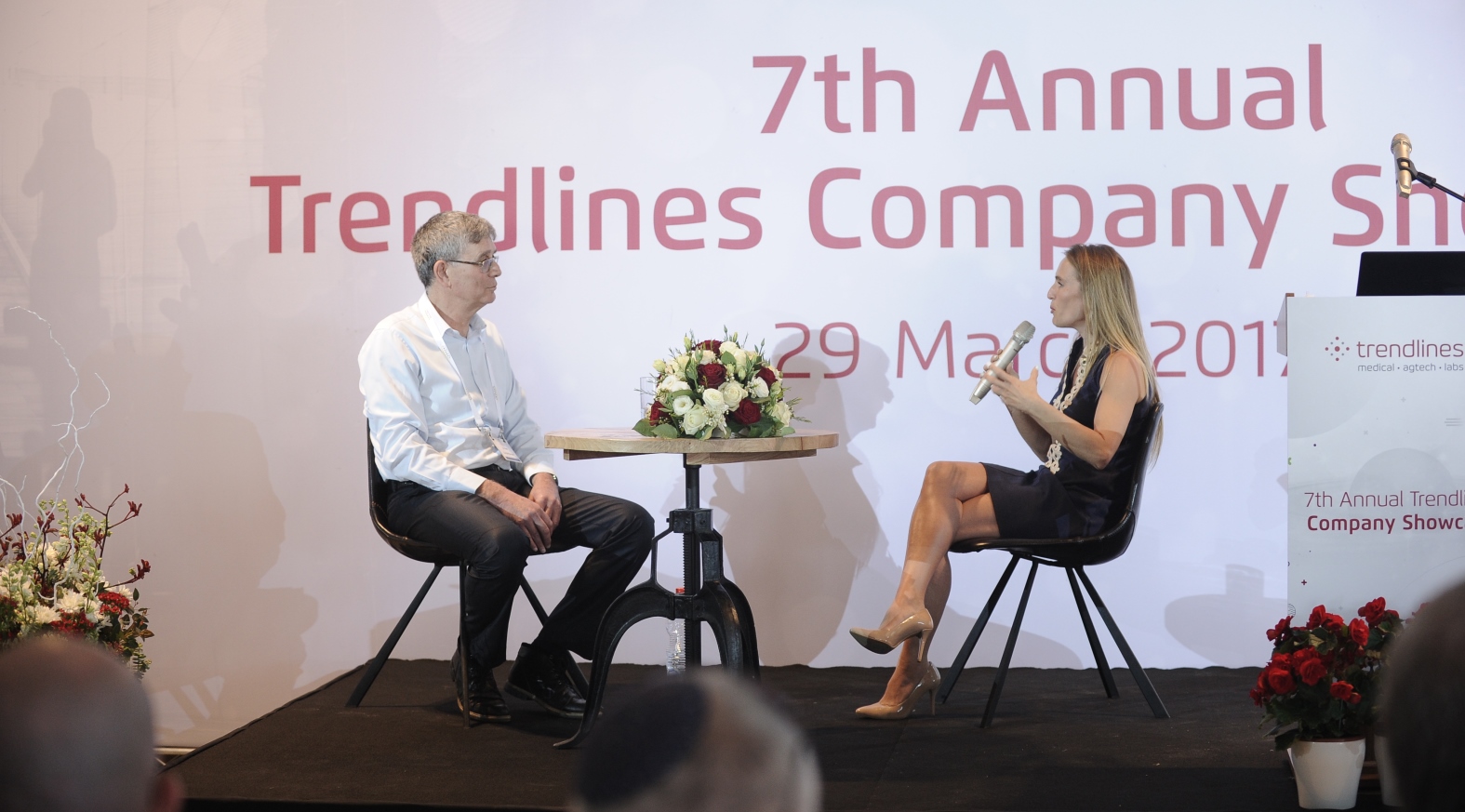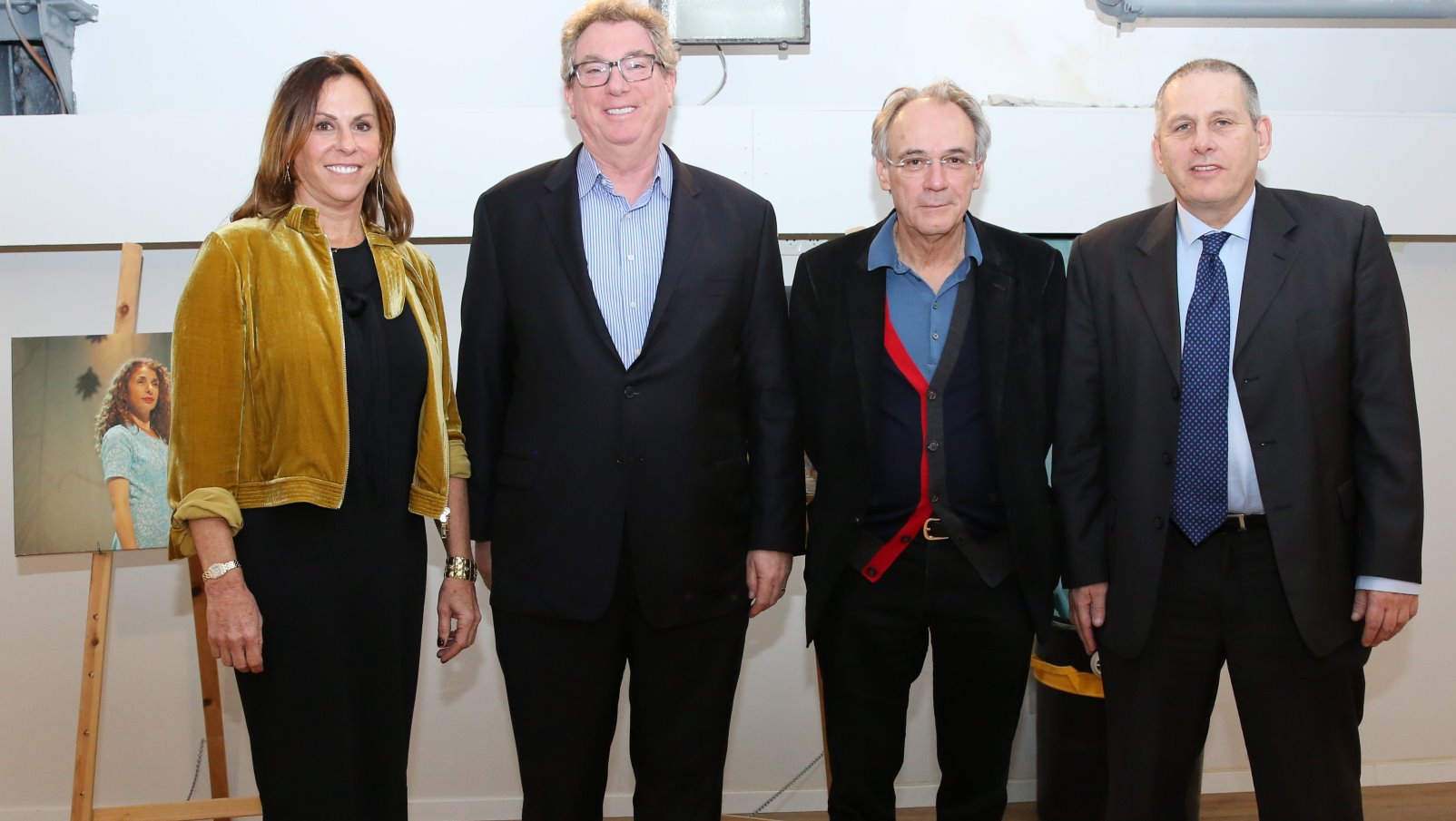Lenore Shoham’s year-old ag-tech startup, InPlant Technologies, is adapting drug-delivery technology to improve the efficiency of agrochemicals and fertilizers.
InPlant is housed where it was born, in a lab at the Technion-Israel Institute of Technology in Haifa. But Shoham’s “baby” is being incubated by Trendlines Agtech, one of 19 franchisees of the Technological Incubators Program (TIP) of the government’s Israel Innovation Authority (IIA).
“We decided the best way to maximize the value of the technology is to establish an independent company around it to do deals with industry partners,” Shoham tells ISRAEL21c. “There were no other ways to do this than to go via incubators. It’s very, very difficult to find early-stage or pre-seed funding for projects in general and certainly in agriculture.”
Of course, she’s hoping that InPlant will follow in the footsteps of some spectacular success stories coming out of TIP over the past 26 years.
Three examples are CyActive (incubated at JVP Cyber Labs), acquired by PayPal in 2015 for an estimated $60 million; Protalix Biotherapeutics (incubated at Meytav), whose plant-based Elelyso is FDA-approved for treating Gaucher disease; and wearable robotic exoskeleton developer ReWalk, incubated at the Technion and now sold worldwide.

Shoham says Trendlines helped her build a professional team and is actively involved on a daily basis in focusing InPlant’s strategy and business development, referring potential partners and investors, advising on marcom and purchasing, and funding the legal work.
TIP’s model has sparked interest from other countries, where incubators typically are sponsored by a private company, municipality or academic institution.
Public-private incubation
The IIA (then the Office of the Chief Scientist of the Ministry of Economy and Industry) launched TIP in 1991, mainly to help Russian immigrant engineers and scientists get into entrepreneurship. Between 2006 and 2015, more than 600 startups were accepted into TIP, with 10% of them in the pharma industry.
Incubators are distinct from accelerators, which run shorter programs of up to six months for later-stage startups, usually ending with a demo day or pitch night.
Since 2011, TIP’s incubators have been privatized but still offer government financial incentives. There are 18 two-year incubators for tech startups and one three-year incubator for pharma startups. Each houses eight to 15 companies rent-free.
“The incubators are pre-seed or seed funds managed by a team, offering half a million to 2.5 million dollars to each startup,” explains Anya Eldan, general manager of the IIA Start-Up Division.
“The owners can be strategic partners wanting to invest in their field of expertise, including multinationals such as Philips, Boston Scientific, Medtronic, Strauss, Teva and Cleveland Clinic. About two-thirds are owned by a consortium of corporates in Israel and abroad. The rest are owned by venture-capital firms.”
Technion graduate and high-tech veteran Tzameret Rubin, now senior research and enterprise associate at Loughborough University in the UK, has analyzed business incubators in Australia and Israel. She is interested in how other countries have adapted their own versions of TIP.
“The really unique bit about TIP is its continuation for more than 25 years now, with very small changes,” Rubin tells ISRAEL21c. “Normally, innovation programs change globally as governments come and go, so you rarely find an incubator program that stayed for so many years.”
Rubin is now studying how Israeli government-led dedicated R&D funding programs can improve innovation outcomes as well as the businesses’ productivity over the years.
Lowering risk
Eldan says TIP has had a significant impact on industry because government support helps reduce risk and enables professional investments in early-stage companies in high-risk areas such as pharma, medical devices, clean-tech and ag-tech, as well as the newer sectors of digital health and food-tech.
“Seed funds are rare because the financial model is problematic – small investments vs. large overhead costs. So having seed funds with professional teams and investors is a big achievement,” says Eldan. “In many cases, the incubator program is the first investment vehicle for strategic partners in Israel such as Takeda, Nielsen and Amgen.”
Many TIP incubators have also raised a micro VC fund to invest in graduating portfolio companies, helping them bridge the post-seed “valley of death.”
Highlighted below are five of the licensed incubators in TIP. For the full list, click here.
JVP Cyber Labs in Beersheva brings together academia, multinationals and veterans of special military units to develop cyber innovation startups for 18 to 24 months. Each receives a risk-free government loan and access to strategic partners for building and marketing the business as well as fine-tuning the technology. JVP has incubated successful cyber-security companies including CyberArk, Navajo (acquired by SalesForce), Magnifire (acquired by F5 Networks), ThetaRay and NativeFlow.
The Kitchen in Ashdod — the world’s first food-tech incubator — was opened in 2015 by The Strauss Group, one of Israel’s largest food producers, to nurture businesses that could solve “pain points” in the industry and make the world’s food chain more productive, affordable, sustainable and healthful. The Kitchen invests half a million dollars in each of an average four startups per year for 18 to 24 months.
NGT3 (Next Generation Technology) in Nazareth focuses on med-tech startups in the Arab sector and business partnerships between Jews and Arabs. Founded in 2013 within the 11-year-old NGT incubator, NGT3 has raised $32 million from European, American and Israeli partners and has a commitment to give one percent of its profit to the Arab communities in the north of Israel. One of its portfolio companies, PamBio, recently raised $7 million toward developing a new treatment for hemorrhagic stroke and other kinds of brain bleeding.

MindUP digital health incubator at the Life Sciences Park in Haifa is a joint venture of Medtronic, IBM, Pitango Venture Capital, Impact 1st Investments and Rambam Health Care Campus in collaboration with the IIA. MindUP invests in big data, predictive analytics, telemedicine, cloud computing, wearable and implantable sensors, advanced point of care diagnostics, personalized medicine, genomic analysis and hospital IT systems.
SouthUp, the first tech incubator in a Gaza border area of the Negev, is part of a larger association established by businesspeople and educators from Israel and from San Diego, California. SouthUp develops and promotes local technology startups in fields (such as communications, sustainability, ag-tech and software) best suited to the local population and with potential to match international market needs.















